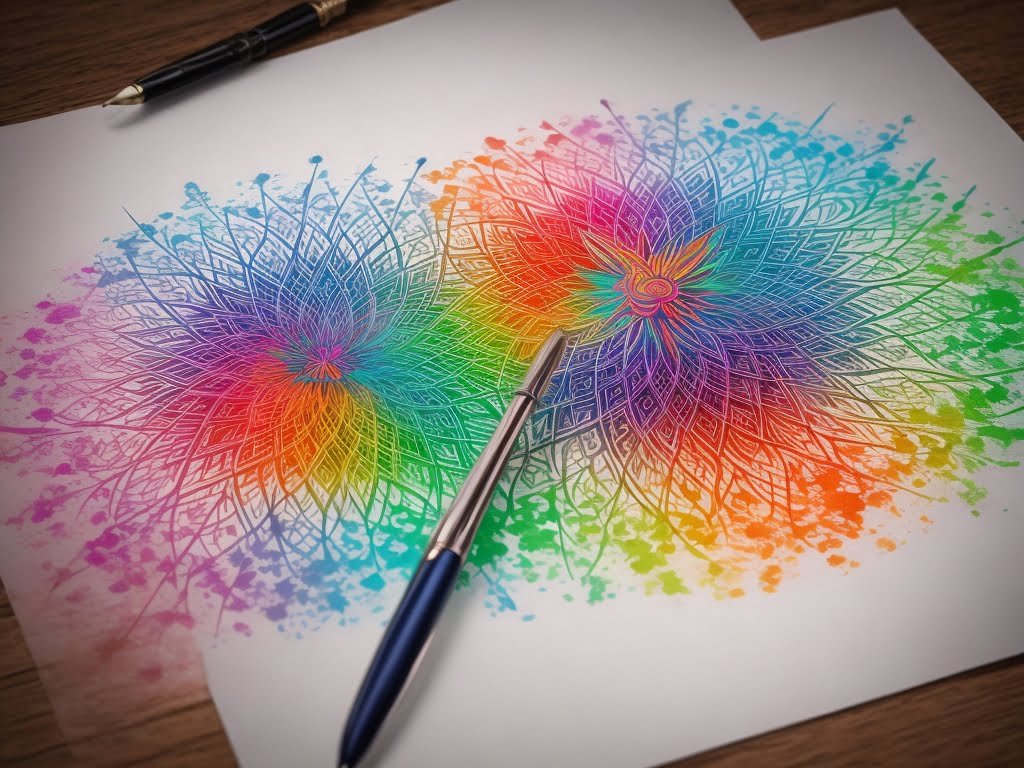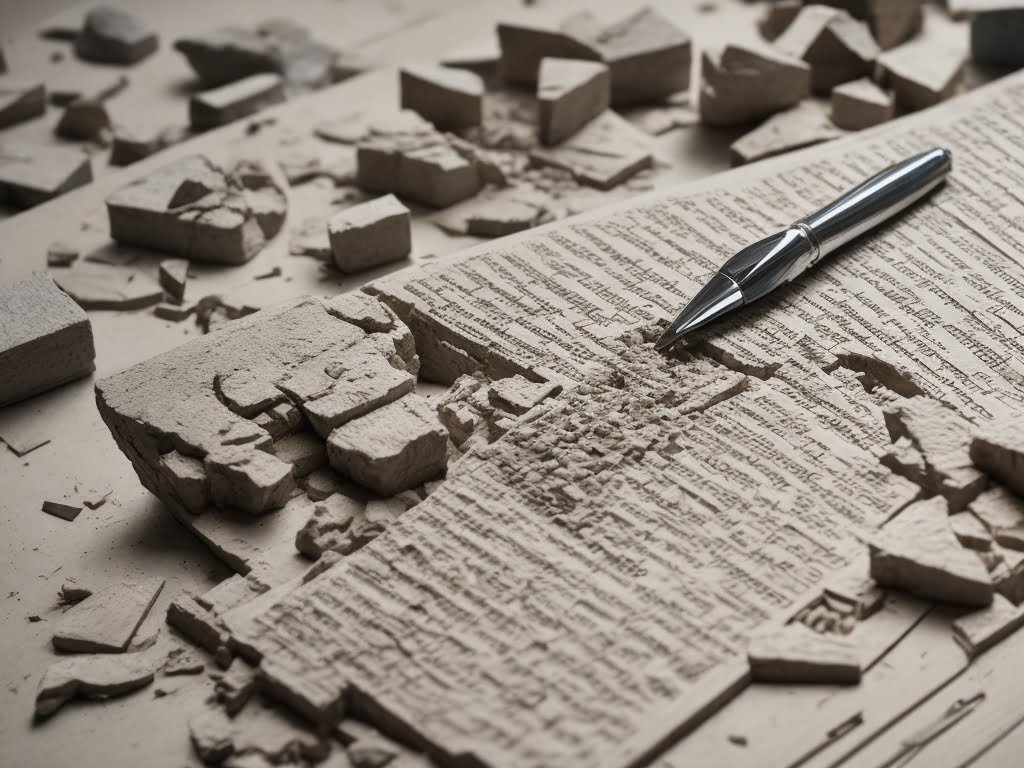From Blank Page to Masterpiece: Unleashing Your Creative Potential in Writing

Are you staring at a blank page, feeling overwhelmed and unsure of where to start? Don’t worry, we’ve all been there. The struggle to unleash your creative potential in writing can be challenging, but with the right guidance, you can turn that blank page into a masterpiece.
In this article, we will share proven strategies and techniques to help you unlock your creativity and tap into your unique writing voice. Whether you’re a seasoned writer looking for fresh inspiration or a beginner trying to find your footing, this article is packed with practical tips to help you take your writing skills to the next level.
From brainstorming ideas to overcoming writer’s block, we’ll cover it all. We’ll explore how to cultivate a creative mindset, find your writing rhythm, and develop a consistent writing practice. You’ll learn how to harness the power of visualization and use it to fuel your creativity. And we’ll share practical exercises and techniques to kickstart your imagination and transform your writing from ordinary to extraordinary.
So, if you’re ready to unleash your creative potential and transform your writing, let’s dive in. Together, we’ll turn that blank page into a masterpiece.
The importance of creativity in writing

Creativity is the lifeblood of writing. It’s what sets your work apart from others and gives it a unique voice. But why is creativity so important in writing? Well, for starters, it allows you to connect with your readers on a deeper level. When your writing is infused with creativity, it becomes more engaging, captivating, and memorable.
Moreover, creativity helps you stand out in a sea of content. In today’s digital age, where there is an abundance of information available, it’s crucial to produce work that stands out and grabs attention. By infusing your writing with creativity, you can differentiate yourself from the competition and make an impact.
But how do you tap into your creative potential? How do you unleash your imagination and let it run wild on the page? Let’s explore some strategies to overcome writer’s block and find inspiration.
Overcoming writer’s block

Writer’s block can be one of the most frustrating challenges for any writer. It’s that feeling of being stuck and unable to find the right words or ideas. But fear not, writer’s block is not insurmountable. There are several techniques you can employ to overcome it and unleash your creativity.
One effective method is to take a break and engage in activities that stimulate your mind. Go for a walk, listen to music, or do some freewriting. These activities can help clear your mind and allow ideas to flow more freely.
Another helpful technique is to create a writing ritual. Set aside a specific time and place for writing, and stick to it. By establishing a routine, you train your mind to be in a creative state at the designated time, making it easier to overcome writer’s block.
Finding inspiration and cultivating creativity

Inspiration can come from anywhere, but sometimes it needs a little nudge. Here are a few strategies to find inspiration and cultivate creativity in your writing:
1. Read widely: Expose yourself to different genres and styles of writing. Reading can spark new ideas and help you discover unique approaches to storytelling.
2. Explore other art forms: Music, visual art, and film can all inspire your writing. Pay attention to how other artists evoke emotions and create narratives.
3. Keep a journal: Carry a notebook with you and jot down interesting observations, thoughts, and snippets of conversation. These little details can serve as a wellspring of inspiration.
4. Engage with the world: Step outside your comfort zone, try new experiences, and meet new people. The more you engage with the world, the more material you have to draw from in your writing.
The role of brainstorming in the creative process

Brainstorming is a powerful tool for generating ideas and expanding your creativity. It allows you to explore different possibilities and think outside the box. Here are some tips for effective brainstorming:
1. Set a goal: Define what you want to achieve with your writing. Having a clear objective will guide your brainstorming session and help you stay focused.
2. Quantity over quality: During brainstorming, the goal is to generate as many ideas as possible, without judgment. Don’t worry about the quality at this stage; you can refine and select the best ideas later.
3. Embrace diversity: Encourage diverse perspectives and ideas. The more varied the input, the richer your brainstorming session will be.
4. Mix and match: Combine different ideas to create something unique. Don’t be afraid to experiment and push the boundaries of conventional thinking.
Developing a writing routine to foster creativity

Consistency is key when it comes to developing your creative potential in writing. By establishing a writing routine, you create a conducive environment for your creativity to thrive. Here are some tips to develop a writing routine:
1. Set aside dedicated writing time: Find a time of day when you are most alert and focused. Dedicate that time exclusively to writing, even if it’s just for a short period.
2. Create a writing space: Designate a specific area for writing that is free from distractions. This space should inspire and motivate you to sit down and write.
3. Set realistic goals: Break down your writing projects into manageable tasks and set achievable goals. This will help you stay motivated and make progress.
4. Practice mindfulness: Before you start writing, take a few moments to clear your mind and focus on the present moment. Mindfulness can help you tap into your creative flow.
Techniques for generating ideas and expanding creativity

Sometimes, all it takes is a spark of inspiration to unleash your creativity. Here are some techniques to generate ideas and expand your creative thinking:
1. Mind mapping: Start with a central idea and branch out, connecting related concepts and ideas. Mind maps help visualize the connections between different elements and can spark new ideas.
2. Freewriting: Set a timer and write continuously without worrying about grammar, structure, or coherence. This technique allows your subconscious mind to express itself freely, leading to unexpected ideas and insights.
3. Visual prompts: Look for visual stimuli like photographs, paintings, or illustrations. Let the images inspire your writing and take your imagination to new heights.
4. Word association: Start with a random word and let your mind wander, making connections to other words and ideas. This technique can help you discover unexpected connections and generate unique ideas.
Embracing experimentation and taking risks in writing

Creativity thrives on experimentation and taking risks. Don’t be afraid to step out of your comfort zone and try new things in your writing. Here are some ways to embrace experimentation:
1. Try different genres: Experiment with different genres and writing styles. Stepping outside your usual genre can open up new creative possibilities.
2. Play with structure: Break free from traditional storytelling structures and experiment with non-linear narratives, flashbacks, or alternative perspectives.
3. Use unconventional perspectives: Tell your story from an unusual point of view or experiment with unreliable narrators. This can add depth and intrigue to your writing.
4. Incorporate multimedia elements: Explore the use of multimedia elements like images, videos, or audio recordings to enhance your writing and create a more immersive experience for your readers.
The power of revision and editing in refining creative writing

Revision and editing are essential steps in the creative writing process. They allow you to polish your work and refine your ideas. Here are some tips for effective revision and editing:
1. Take a break: After completing a draft, take some time away from your writing. This will give you fresh eyes when you come back to it for revision.
2. Read aloud: Read your work aloud to catch any awkward phrasing, repetitions, or inconsistencies. This will help you identify areas that need improvement.
3. Seek feedback: Share your work with trusted friends, writing groups, or professionals. Getting feedback from others can provide valuable insights and help you see your work from different perspectives.
4. Cut the excess: Be ruthless in cutting unnecessary words, sentences, or paragraphs. Trim your writing to its essential core, making it more concise and impactful.
Tools and resources to enhance creativity in writing

In the digital age, there are numerous tools and resources available to enhance your creativity in writing. Here are some recommendations:
1. Writing software: Use writing software like Scrivener or Ulysses to organize your ideas, create outlines, and streamline your writing process.
2. Online writing communities: Join online writing communities like Wattpad or Medium to connect with other writers, share your work, and gain inspiration from the works of others.
3. Creative writing courses: Enroll in creative writing courses or workshops to learn new techniques, get feedback from experts, and expand your knowledge.
4. Writing prompts: Use writing prompt generators or books to spark your imagination and get your creative juices flowing.
Conclusion: Embracing your creative potential in writing
Unleashing your creative potential in writing is a journey of self-discovery and growth. It requires patience, practice, and a willingness to take risks. By following the strategies and techniques outlined in this article, you can tap into your unique writing voice and transform your work from ordinary to extraordinary.
Remember, creativity is not a finite resource. It’s an infinite well that replenishes itself with every word you write. So, embrace your creative potential, trust in your unique voice, and let your imagination soar. From that blank page, you can create a masterpiece.



